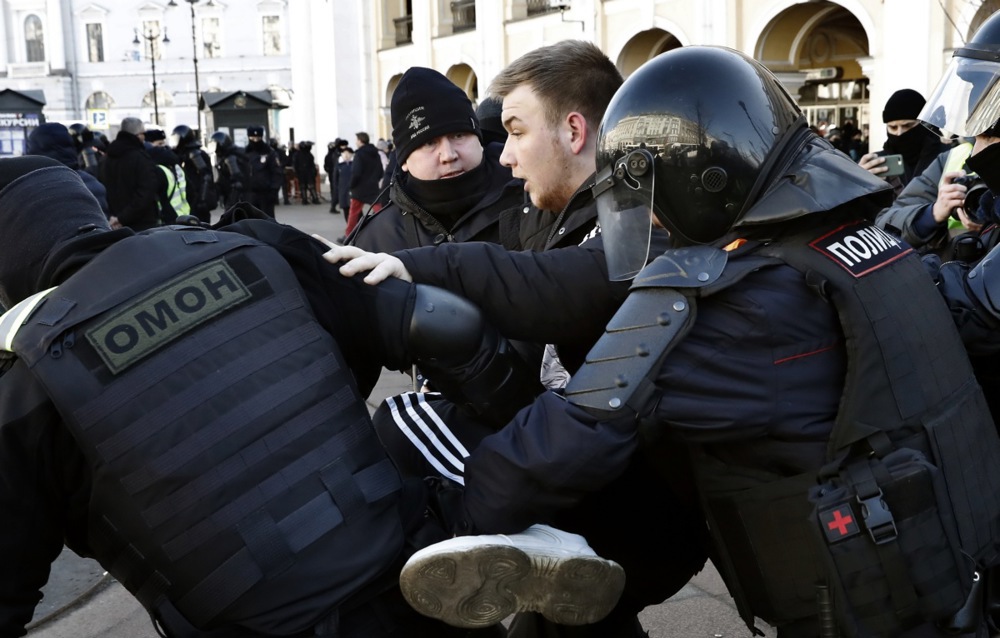In the first two months of 2024, the Russian parliament has approved new laws ramping up pressure on journalists and public figures critical of the war on Ukraine. The provisions, which allow for the confiscation of property for those convicted of “fake news” and ban commercial advertising on media and other websites designated as “foreign agents”, seek to undermine journalists and media operating in exile while also increasing a culture of fear inside the country. The new laws were adopted two years after the enactment of wartime censorship in Russia, which forced many independent journalists to flee.
“These new laws are clearly aimed at silencing and intimidating any remaining critical voices inside Russia as well as exiled journalists and media who continue to provide Russian audiences with independent news and information”, IPI Deputy Director Scott Griffen said. “IPI strongly condemns these cynical efforts to threaten and financially undermine Russian exiled journalists, which show that the Kremlin’s repressive tactics are increasingly cross-border in an all-out effort to stop the public from hearing critical voices.”
Confiscation of property
On January 24, the Russian state Duma (lower house of parliament) voted on a bill allowing for the confiscation of property under certain conditions of those sentenced for disseminating “fake news” about the Russian army. Property can also be confiscated based on 24 other charges linked to national security, according to the text of the law, which was signed by Vladimir Putin on February 14.
Russian journalists independently covering the war in Ukraine have been targeted by the country’s “fake news” provisions and one of the new law’s co-authors, Russian MP Andrey Lugovoy, suggested its targets are exiled public figures, including journalists. On the day Russia’s Duma approved the bill, he said: “Fleeing the country is, of course, easy and pleasant (…) But we will not allow this situation. Anyone who tries to cause damage to their homeland, country and citizens will lose everything and die there, outside our country, like the last dog,” Lugovoy told journalists interviewing him at Russia’s parliament building.
Currently, the law foresees that only those found guilty of breaking the law due to “mercenary motives” can have their property in Russia confiscated. In addition, Russian human rights defenders have reported that the law cannot in principle be applied to already delivered sentences. Memorial, the Nobel Peace Prize-winning Russian human rights group, said the law’s main goal, rather than actual seizure of property, may be to “create an atmosphere of fear and suffocate the possibility to express oneself on topics considered ‘dangerous’ by the government”.
As of March 2024, at least four Russian journalists are in prison for disseminating “fake news” about the Russian army, according to IPI monitoring. Several others in exile have been sentenced in absentia. At least two of them, Ruslan Leviev and Michael Nacke, were found guilty of disseminating “fake news” with “mercenary motives”.
Ban on commercials and royalty payments for “foreign agents”
In late February, the Russian Duma unanimously approved another measure targeting independent public figures: a ban on companies placing ads on websites, social media, and other digital platforms run by “foreign agents”. The text also bans third parties from receiving orders for commercials from such individuals and organizations. On March 11, this bill was signed into law by Vladimir Putin.
The parliament’s speaker, Vyacheslav Volodin, justified this measure as a means of cutting off funding to independent voices critical of the war in Ukraine. Violators of the law would face fines of up to 50,000 rubles for individuals or 300,000 rubles for companies as well as prison sentences in some cases.
The regulations will impact independent Russian media outlets that received the “foreign agent” designation and will further strip them of revenue. As of March 2024, nearly 800 individuals and organizations in Russia hold this status. According to data compiled in May by Russian independent media outlet Verstka, journalists are by far the largest professional group on the list, representing nearly half of all the individuals designated as “foreign agents”.
The law’s effects are already being felt. On February 28, journalist Ekaterina Gordeeva, who hosts a popular YouTube channel on which she interviews Russian public figures, said the regulations were forcing her to suspend her media project. On March 6, however, she announced that she would attempt to continue with support from crowdfunding. Gordeeva was designated as a “foreign agent” following the start of the full-scale invasion of Ukraine.
The upcoming law could force other exiled Russian bloggers to shut down their activities, too, as many have been designated as “foreign agents” while still relying on ads by Russian companies to support their activities.
Russian MPs are now also planning a law that would make it impossible for “foreign agents” to receive royalty payments. This measure would further whittle down funding sources for writers and journalists designated as “foreign agents”.
As of March 11, IPI has identified no fewer than 129 cases in which Russian authorities have used “foreign agent” legislation to repress journalists and media for their reporting on the war in Ukraine.
